[A society] has to have constellating images to pull together all these tendencies to separation, to pull them together into some intention.
– Joseph Campbell
I am sat at the optician’s, waiting for my new glasses to be cut, glaring at the fuzzy shapes around me. I’m practically blind without my spectacles, the world blurs into light and colour without definite form. I pick up the newspaper on the table in front of me and nearsightedly hold it right up in front of my face until letters emerge out of the page. The front page headline tells me that Denmark is in danger of “breaking in two” because “fringe Denmark” is becoming depopulated. The problem appears to be that the “spring signs” of growth and economic recovery are occuring only in the cities and that none of the new wealth will spill over to the margins. As the youth migrates to the cities fringe Denmark is left crippled and ageing. Denmark is breaking in two.
I left Denmark in the year two thousand. Before two succesive liberal governments overturned the political system, before 9/11 and the wars in Iraq and Afghanistan, and before the racist Danish People’s Party became house-trained. While much of my ambivalence about this small Nordic nation faded as I grew up and gradually came to appreciate the aesthetic of Western Jutland, understand my Greenlandic heritage and hear the stories buried in the agricultural wasteland, I have never quite found my peace with the small-mindedness that has infected the Danish people’s soul. Affluent, educated and innovative, we are a nation of merchants who traded compassion and spirit for function, utility and technology. If this sounds ostentatious, I dare you to go to Herning, the arsehole of the world, and bring back any sense of hope. Or to visit one of the farms where pigs have their tails cut off as a matter of procedure, never see daylight and are routinely injected with antibiotics (Denmark has the highest piglet mortality rate in the world).
It seems to me that much of what we used to pride ourselves of as a nation has waned since the turn of the millenium. In my cynical moments it looks as if the last remnants of Grundtvig’s Christian Enlightenment ethic have completely washed out in a post-political, sensationalist and trivial public debate which raise banality to matters of global importance. From my insider’s outside perspective it looks as if the failures of the Danish media, politicians and public commentators together have turned politics into a spectacle with no bearing on reality. A spectacle which produces a fringe and a process of depopulation but no means of tackling the problem. A spectacle which robs people who live in a rural place of any sense of worth in their local landscape and history. A demented narrative which forgets that everything that is now painfully clawed at as Danish grew out of that same land which is now in harness, domesticated and plastered with infrastructure.
That Denmark, a country with a population lower than London, is “breaking in two” will surely sound either absurd or amusing to anyone who has lived in a nation with such a swelling populace that it surpasses Denmark’s five (and a half) million souls. But underneath the misguided narrative of two countries within one lies the reality of a concentration of people and wealth in the cities and a lack of skills, vision and strategy in the province. Unfortunately, the blinding growth narrative leaves no option for fringe Denmark: the only possible game plan is to chase the wealth of the core cities. It’s a self-fulfilling prophecy what might very well lead to much starker contrasts between core and fringe. A dynamic with so many precedents that it now appears to the Danes to be “just the way it is” because “we’ve got to keep up with progress”.
“Here, we develop people”, the sign reads outside the kindergarden in my hometown. None of the famous Danish irony in that statement.
As I sit there, near blind and surrounded by the latest fashion in glasses by Givenchy, Hugo Boss, and Ray Ban, it appears as if this story of a great fracture ripping this old viking nation in two connects with other historical events playing out in fringe Denmark.
When I heard of the European-wide Ash dieback upon the arrival of Hymenoscyphus pseudoalbidus in England in 2012, I learnt that the Danish Ash population was already in very bad shape. To say the least. I was astonished to find that the Ash is expected to be wiped out in Denmark save two percent which hopefully might develop a resistance to the disease.
The Ash is not just any tree. It is a central symbol in Nordic mythology: Yggdrasil, the primordeal tree of life, is a great Ash. Underneath its branches sit three Norns who spin the threads of history and the fate of mankind. Yggdrasil reaches into the nine heavens and its roots extend deep into three wells in other worlds. It is the mythological axis around which the temporal world revolve. When the Ash dies, so does the core symbol of Nordic mythology. And mythology, writes Joseph Campbell, is “the song of the universe” itself. Seen in this way, the disappearance of the Ash in Denmark is a loss of mythical proportions, a silencing of an ancient voice in the chorus of life.
Far away from Yggdrasil and the three Norns, at the edge of the world, lies chained a ferocious beast. A creature destined to swallow Odin, king of gods, when it breaks free of its enchanted fetter. Fenris, the ghastly wolf of the Fens, will be set free when his sons have swallowed the sun and moon and all the stars disappear. In the great battle at the end of times, Fenris will kill Odin and suffer death at the hand (and boot) of Odin’s son, Vidar. Now, nearly two hundred years after the last wolf was shot dead near Skive in 1813 the wolf has returned to Denmark. In 2012 a wolf was found dead in Thy, the original home of the Teutons, and others have since been spotted at different locations in Jylland.
Perhaps the death of the Ash tree and the return of the wolf does not spell the end of the world or of the Danish soul. But while I sit reading about Denmark breaking in two I can’t help wonder if there isn’t a deeper metaphorical meaning in this coincidence which illuminates some of the troubles my country is going through. Collectively, we have become so removed from the land that we don’t see any value in living on it – it has been turned into a resource, a source or wealth purely in economic terms. We don’t listen to the land but sculpt it as we please or poison it with pesticides. The myths and stories which in many ways made sense of and breathed life into the landscape are dying. We no longer connect with the land as a repository of knowledge and history but have instead become managers of nature.
Could it be that we need to rediscover that we ourselves are nature and that it is not just our outside nature that lies in harness but our inside natures too?
The meaning of the Norse term Ragnarök is ambivalent. In the Edda, it refers to events in which some of the major gods, including Odin, die. It is the end of time when the world is swallowed by water. But Ragnarok also signifies the end of a chaotic age and a renewal of the divine. Two humans find refuge in Yggdrasil and repopulate Midgard. This is a more sophisticated interpretation of Ragnarok: life needs to eat to live, death and killing is a condition the living cannot be without. And so endings are never final but are rather sources of transformation as life grows again from death and decay.
Perhaps Denmark “breaking in two” means an opening for some of the old ways and insights to re-enter the Danish soul. Could it be that social stagnation on the fringe creates a possibility for those who have become disillusioned with the growth narrative to find a place where they can experiment with making community work in ways that don’t have to obey the logic of growth? Might there again be land available and is it possible to breathe life into the dry bones of the landscape through ecologically sound ways of living? If so, it may very well be that the needed wisdom will come from the old myths because they tell not just the story beginnings and endings but of human adventure and of right relationship with land. As Joseph Campbell says:
“The relationship of myths to cosmology and sociology has got to wait for man to become used to the new world that he is in. The world is very different today from what it was fifty years ago. But the inward life of man is exactly the same. So if you put aside for a while the myth of the origin of the world – scientist will tell you what that is anyway – and go back to the myth of what is the human quest, what are the stages of realization, what are the trials of the transition from childhood to maturity and what does maturity mean, the story is there, as it is in all religions.”
Sitting there waiting for my glasses in the blurry and glittery world of fashion, renewal seems a long way away. At the moment, the trouble is still being treated with more of the same, more economics, more progress, more planning. There are yet many stages of decline to come and the break will be painful in many ways. The stages of realisation includes facing the coming storm, abandonment, and collapse, before finding joy and community. It involves finding our own roles within the wider community of life and becoming a new kind of pioneers.
If the ash is to survive in Denmark it needs both love and care from the human world. Could it be that the renewal signified by Ragnarok is a reversal of the anthropocentric narrative which sees two primeval humans finding refuge in Yggdrasil to a reciprocal, ecocentric story where humans refind their connection with the land and tend the ash back to life? That Yggdrasil, the majestic and eternal centre of life, is not a resource to be endlessly exploited but also a fragile seedling which needs human hands to survive.
And could it be that we need the fringe if we want to find the “constellating images” we need to find community in a society that is breaking in two? If so, this suggests that the “solution” to recession is not primarily one of turning the right knobs on the economic machine but one of questioning what it is that makes a society a community. And that, as Alastair McIntosh says, is a matter of “digging where we stand”, to find the taproots from which life will regenerate and what is broken can heal.
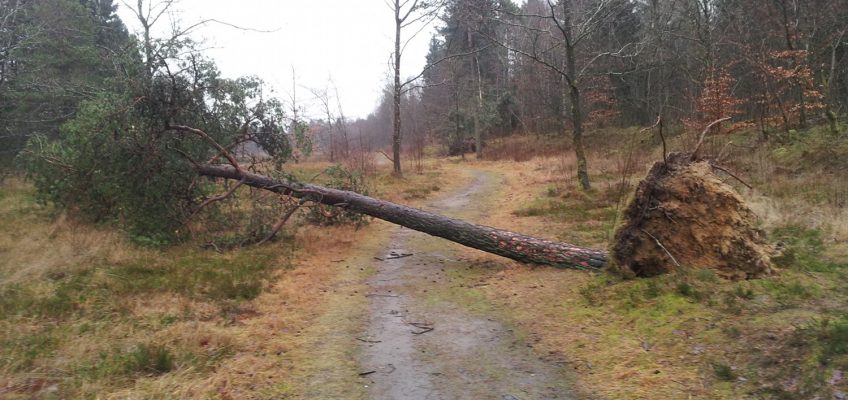
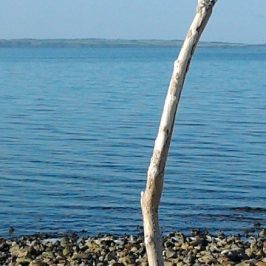
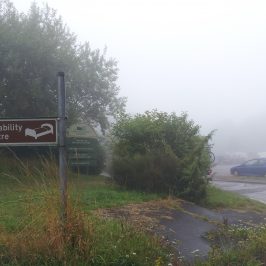
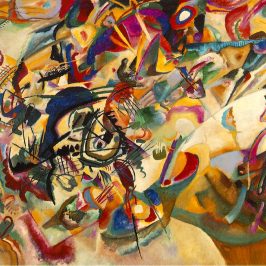
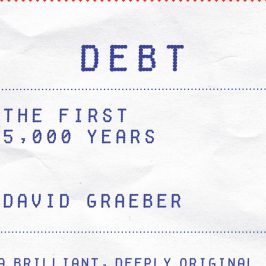
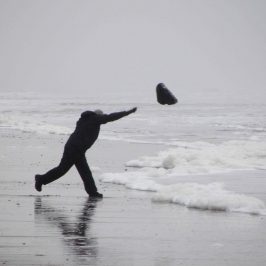
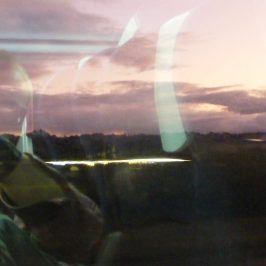
Bert van Baar
I have read your comment and was supprised that also Danmark has fallen into the hands of the ‘new fundamentalists’ of the starving world.
I have good memories of the 70ties when i had some fine holidays overthere.
I always thought that the Danes were harnassed against the European unionists.
I felt very sorry to hear that you have the same troubles as we suffer in Holland: capital is taking over the world and normal people are giving up resistance while being fed with “bread, wine and plays”.
Hearing and reading about The War On Nature I feel sorry for the world.
Regards
Bert